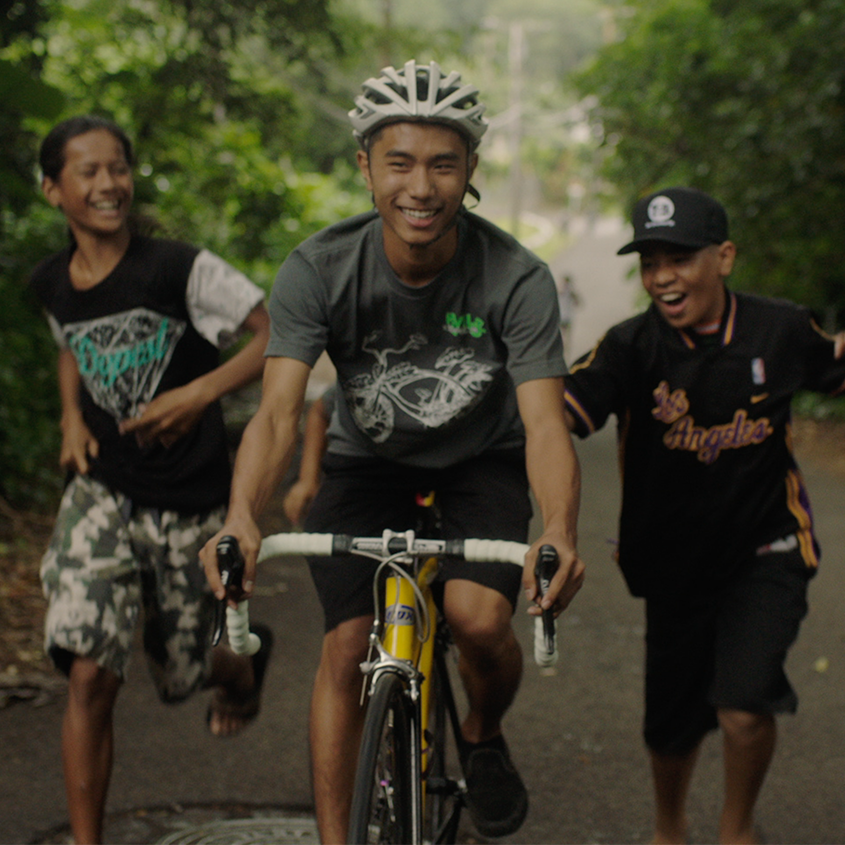By Serpil Senelmis & James Brandis
Numerous international reports have identified a big gap in emotional support available to men with prostate cancer. Canada’s TrueNTH Peer Navigation pilot program funded by the Movember Foundation is breaking new ground by training prostate cancer survivors for one-on-one support.
Steve Salkovitch was diagnosed with prostate cancer in 2015. The 68-year-old recalls being left to fend for himself after a radical prostatectomy.
“I was pretty well on my own. The health system offered nothing as far as I knew at that time for support.”
Mr Salkovitch’s experience is not atypical. A 2013 survey conducted across seven European countries and involving over 1000 men found that 81% of the respondents had some unmet supportive care needs.
For the past two years the retired manufacturing worker has dedicated himself to addressing men’s needs, improving coping skills and reducing distress.
He discovered the Peer Navigation pilot program before being diagnosed while at an annual Father’s Day prostate cancer walk which he was attending to support his father-in-law who had been treated for prostate cancer.
Based in Richmond Hill, Ontario Mr Salkovitch was motivated to join the Peer Navigation program to help other men like him with feelings of isolation and anxiety, as well as providing guideposts.
Having lost his wife of 30 years to breast cancer, Mr Salkovitch explains that he’s going into these conversations eyes wide open.
“I just wanted to show other men that you can still have a very rewarding life even after treatment.”
While he declares he’s making the most of life, he admits things have changed. The one-time keen runner who once clocked 30-kilometre stretches, nowadays occupies himself with long walks and golf.
After surgery his sex life was not what it used to be either. His second wife Joyce recorded the changes in her diary.
“I think after 27 months we seem to be getting back in the saddle again,” Mr Salkovitch says.
According to the grandfather, sex is one of the most commonly discussed topics with his matched peers. Mainly due to one of the side-effects of prostate cancer treatment – erectile dysfunction.
“You can't get manlier than an erection, so self-esteem in a lot of men is diminished. If you played the piano before the surgery at 10, maybe after surgery you'll be an eight.”
“But it's certainly not non-satisfying and this is one of the things that I try to emphasise in my matches. You can still have a satisfying sex life even after the surgery and with the side effects.”
FILLING THE GAPS IN EMOTIONAL SUPPORT
The Peer Navigation program is the first of its kind in Canada and is currently being piloted at cancer centres in Toronto and Vancouver. The program is designed for prostate cancer patients and their partners to be paired online with a prostate cancer survivor – a peer navigator who is trained to guide and support them through their care journey.
What sets this program apart from other support groups is its one-on-one personalised approach.
Dr Jackie Bender is a Research Scientist in the Cancer Rehabilitation and Survivorship program at the Princess Margaret Cancer Centre and an Assistant Professor at the Dalla Lana School of Public Health at the University of Toronto. She says a systemic review of existing research showed that for most men the preferred form of support was one-on-one.
“We did a national survey of 1400 prostate cancer patients across four provinces and 70 percent of those said that they wanted to be connected to another peer cancer survivor.”
While Dr Bender and her colleagues are in the midst of evaluating the Peer Navigation pilot program results, she says the need for one-on-one support is something that is consistently coming through the evaluation data of the patient and caregiver experiences in the program.
“One of the benefits expressed by patients and caregivers is the relative ease with which they feel they can open up to their peer navigator”.
GETTING MEN TO OPEN UP
Winston Isaac is a peer navigator from Brampton, Ontario and has experienced the power of one-on-one support first hand. He says, he “went to a support group just to check it out when I was diagnosed and didn't think that most of the men there were comfortable.”
“Men like privacy even though they're coming forward to ask for assistance. I’m now able to interact with men based on their needs and can interject some of my own experiences at the appropriate point.”
At the age of 61 Mr Isaac was diagnosed with an aggressive form of prostate cancer. But before that he fought a long and arduous journey trying to convince his physician and urologist that he should be investigated, despite having a younger brother that was already treated and knowing that he was racially more susceptible.
Eventually, Mr Isaac was treated with Brachytherapy and says that’s when he started wondering how other men were coping and “started looking for opportunities to talk to men about their diagnosis, treatment and after effects of treatment and life after treatment.”
The health policy analyst says through the Peer Navigation program he can now get “anybody to open up to him, even though they were strangers not too long ago.”
“Some men tell me more than they will tell their wives. I think it's that macho thing in that they still want to appear strong in the eyes of their wives. But now that they have a trusting relationship with me they can tell me what their concerns are.”
Being of Caribbean descent Mr Isaac is also mindful of cultural nuances when it comes to discussing prostate cancer.
“Men have different ways of communicating and their cultural backgrounds play a major part and I see that among the black men that I relate to outside of the Peer Navigation program. I hate to say that some men have died because they refuse to get advice regarding their prostate health.”
Peer Navigators like Mr Isaac go through an extensive competency-based 6-week training program which covers topics like the prostate cancer pathway, social inequities, barriers to care, communication skills, and informational support resources, among others.
Dr Bender highlights how this program “goes to the heart of what is clearly a gap in Canada and many countries.” She says unlike talking to a clinician what men gain from this experience is experiential knowledge.
“They're gaining authentic reassurance and knowledge that this person has been through these experiences and gotten through them. And that's something that the physicians and the nurses can't provide.”
PROSTATE CANCER CAN CHANGE YOUR LIFE SIGNIFICANTLY
For 68-year-old John Brisbane who lives near Parry Sound, Ontario the diagnosis of prostate cancer came as a “big shock” to him as well as his urologist who had been regularly testing him.
“I always thought prostate cancer is no big deal. What I didn't know is there's many types of prostate cancer and some of them are quite aggressive. And if you're unlucky enough to get one of the aggressive types, which I am, then it scares the heck out of you.”
Having been physically active for most of his life, being a keen hiker and kayaker, the side-effects of having his prostate removed also hit Mr Brisbane hard.
“I struggled with incontinence after the prostate was removed and it was horrid. I was actually almost afraid to leave the house.”
The retired Ministry of Natural Resources strategic planner and project manager believes that “the missing link is the psychological impact” of prostate cancer.
“Just having somebody to communicate back and forth with that's not my wife and not my family doctor is extremely helpful.”
Living in a rural area with the nearest large town having a population of only 6000 people, Mr Brisbane says his peer support “has been a godsend.”
“Having the ability to talk to somebody, even though it's online chat, is very helpful. We haven't been shy about talking about sexual experiences and how to deal with certain things.”
“It's been good from an emotional perspective, just to have somebody who's in the same boat. I'd say it's invaluable especially for people who live in more remote parts of the country. Without it I probably wouldn't be in the same psychological state.”
If he can get his incontinence “under control” Mr Brisbane hopes to travel to Brisbane, Australia with a plan to see the Great Barrier Reef. Meantime, the photography enthusiast is keeping himself busy with a personal daily project called, Slices of Joy. As a way to help him deal with his prostate cancer journey Mr Brisbane snaps nature photos and uploads them to a Facebook group.
PARTNERS NEED EMOTIONAL SUPPORT TOO
Dr Bender explains that “partners play an incredibly important role for the men with prostate cancer and their families.”
“I would say that they have double support needs. They have caregiving support needs related to how best to support their loved one and then they have their own personal needs related to their own roles as the partner, the spouse, the family member. And dealing with their own fears and concerns and information needs going through that process.”
“Both caregivers and patients in our program talk of those insufficient supports available for partners or caregivers of men with prostate cancer. They really actually see this as one of the few programs that offers personalised one-on-one support for the partner, the caregiver, because that partner can be matched with another partner who is trained as a peer navigator. And that's very unique.”
Joyce Kwart has been Steve Salkovitch’s partner for coming on seven years and she joined the Peer Navigation program to help other partners like herself. She recalls when Steve was diagnosed that she “wanted to keep him positive and not be overly concerned with what was yet to come.”
Ms Kwart explains that partners are often going through their own emotional journey.
“When it came time for dealing with my caregivers I wanted to make sure that they were looking after themselves and living a healthy lifestyle for themselves to be able to cope with what their partners were going through and then provide information.”
Ms Kwart says in some instances, the partners have signed up to the program solo, so they can be the source of information for the men.
“One of the couples were going on a scuba diving trip and she was interested to know about bathing suits and how the gentleman could be as discreet as possible with the issues that he was dealing with soon after surgery while traveling. I got some information with regard to clamps that the men can use to help with incontinence and shared that information.”
WHAT’S NEXT FOR THE PEER NAVIGATION PROGRAM?
Dr Bender states that the next step is to scale up the program and make it available to more men and their partners.
“We're just finishing up with the data collection analysis to complete the evaluation of the delivery of the program in these two cities in Canada. Then we start working on a plan to make it available to more men with prostate cancer, including rural and remote areas throughout Canada and abroad, in collaboration with Movember.”
August 5th, 2019
Numerous international reports have identified a big gap in emotional support available to men with prostate cancer. Canada’s TrueNTH Peer Navigation pilot program funded by the Movember Foundation is breaking new ground by training prostate cancer survivors for one-on-one support.
Prostate cancer patients lack emotional support, TrueNTH sets out to fill in that gap
9 MIN READ


.com_Carousel.jpg)



.png)
